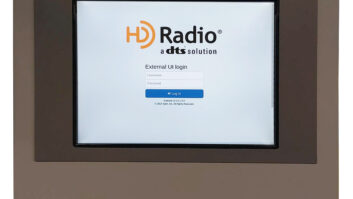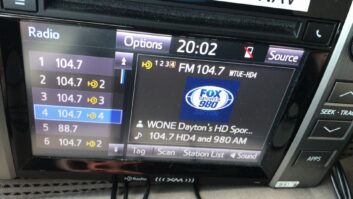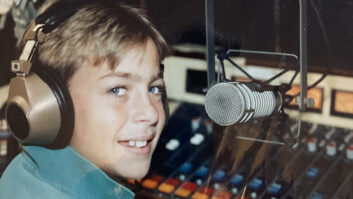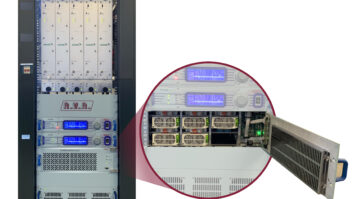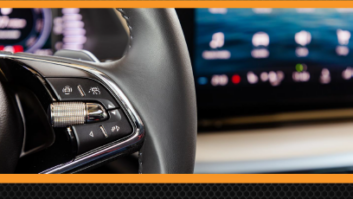A year ago, the author wrote in this space about what he saw as poor marketing of HD Radio. Here he updates his observations.
It’s becoming a trend: Articles in major newspapers express the industry’s HD Radio hopes besides the writer’s natural skepticism. In this case, that skepticism is best expressed in the title of a July 3 piece in the Boston Herald: “Listen up: HD Radio struggling to be heard.”
There are a number of emerging themes or “talking points” in these articles, which are obviously the product of the HD Radio PR machine (and there’s nothing wrong with that, by the way).
Those themes are:
- HD Radio is hugely important to the radio industry.
- Why aren’t people listening to it?
- When receiver prices drop, demand will explode.
- The industry is investing 200 million bucks to get the word out.
Let’s consider each point in turn.
Yes, HD Radio is presented as being hugely important to the industry. But how important is it really?
I was on a panel in late June for the Interep Bear Stearns Symposium and, of course, the topic of HD Radio came up. One panelist reported the non-trivial revenues HD-R was expected to bring in by 2007, if I remember correctly.
Two other panelists – both of whom work in sales-related capacities – indicated that they have no clue how the industry will earn that revenue. How important is a movement where the key to unlocking its revenue is misplaced somewhere around the house?
It seems to me – especially when one presents before an audience of buyers and investors – that one should have a clearly devised revenue strategy, or at least the remotest sign of one.
Could it be that the prospect of a smattering of radios in every market is, in the truest sense of the term, a “hard sell”?
Also at this session I got to see a presentation from Ibiquity Digital about the exciting trends in HD Radio. If you read between the lines of this presentation, however, much of the promise of HD-R is strictly what the tech industry calls “vaporware,” benefits and features that don’t exist yet but will soon.
For example, the ability to rewind and replay songs you like on HD Radios. Not here yet, but will be soon.
What the presenter neglected to mention, of course, is that this technology can be applied right now today – to the same analog radio you listened to this morning. Any benefit of HD-R which is also a benefit of the 800 million radios currently in circulation isn’t much of a selling point, is it?
Why aren’t people listening to it?
Does it bother anyone else that every article written in any neutral publication, meaning a wide circulation newspaper as opposed to an industry trade, can never seem to reconcile the puffery with the usage or lack thereof? Is it good PR for potential listeners to be reminded that most people still aren’t listening?
The industry dearly needs better answers to this question because of the inadequacies of the following answer.
When receiver prices drop, demand will explode.
This is a tremendous myth. The Herald article quotes: “A recent Arbitron/Edison Media Research study found that more than one-third of Americans are interested in HD Radio, but nearly half said they would only purchase an HD Radio if it cost $100 or less.”
This survey is hopelessly vague and worded with “deniability” in mind. For example, what does “interested” mean? And when I have a dollar to spend, which of the things I’m “interested” in will I spend it on?
HD Radio exists in anything but a vacuum. Further, the statistic that “nearly half said they would purchase an HD Radio if it costs $100 or less” is absolutely, positively dead wrong. Of course, from a “deniability” standpoint, “would purchase” and “will purchase” are not the same.
Such is the level of “truthiness” in the world of HD Radio.
The industry is investing
200 million bucks to get the word out
This is presented as an expression of an industry’s commitment. But think about it, how many times have you seen the commitment promoted better than the product being committed to?
Perhaps Apple spends $200 million to promote the iPod, although I doubt it, but they don’t go on and on about how much they’re spending to promote the iPod.
The iPod is what they’re selling, not the selling of the iPod! The natural momentum of a product in the marketplace, not the promotional budget, is its best selling tool.
For HD Radio, we’re selling the selling hard. Since listeners buy benefits and don’t buy “selling,” whom is this selling for? Could the answer be “Wall Street”?
Now truly, many stations are doing a huge job of getting the word out about HD-R and they deserve credit. But “getting the word out” never has been and never will be the problem.
It’s really about time the powers-that-be in our industry faced up to that.
By the way, we keep hearing the “200 million” figure, but we’re many months into this effort. How much of that “200 million” has been spent already? Half?
Ramsey is president of Mercury Radio Research in San Diego. This article was adapted from his blog at www.radiomarketingnexus.com.





